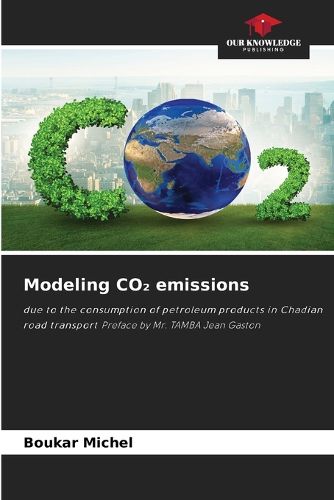Readings Newsletter
Become a Readings Member to make your shopping experience even easier.
Sign in or sign up for free!
You’re not far away from qualifying for FREE standard shipping within Australia
You’ve qualified for FREE standard shipping within Australia
The cart is loading…






CO? emissions in Chad are increasing, underlining the importance of the Paris agreements. This thesis studies the short- and long-term dynamics of petroleum product consumption (super and diesel), prices, vehicle fleet and urbanization on CO? emissions. It analyzes the causal relationships between these variables and forecasts future emissions using ARDL models, stationarity tests, bounds tests and Granger causality tests. The results show that a 1% increase in super consumption leads to a 1.03% rise in CO? emissions, with unidirectional causality. For diesel, the impact is positive but not significant, with bidirectional causality. Forecasts indicate that emissions will reach 2672.39 kilotonnes by 2030. These results will help guide environmental policies to reduce CO? emissions by optimizing fuel consumption and controlling diesel consumption.
$9.00 standard shipping within Australia
FREE standard shipping within Australia for orders over $100.00
Express & International shipping calculated at checkout
CO? emissions in Chad are increasing, underlining the importance of the Paris agreements. This thesis studies the short- and long-term dynamics of petroleum product consumption (super and diesel), prices, vehicle fleet and urbanization on CO? emissions. It analyzes the causal relationships between these variables and forecasts future emissions using ARDL models, stationarity tests, bounds tests and Granger causality tests. The results show that a 1% increase in super consumption leads to a 1.03% rise in CO? emissions, with unidirectional causality. For diesel, the impact is positive but not significant, with bidirectional causality. Forecasts indicate that emissions will reach 2672.39 kilotonnes by 2030. These results will help guide environmental policies to reduce CO? emissions by optimizing fuel consumption and controlling diesel consumption.